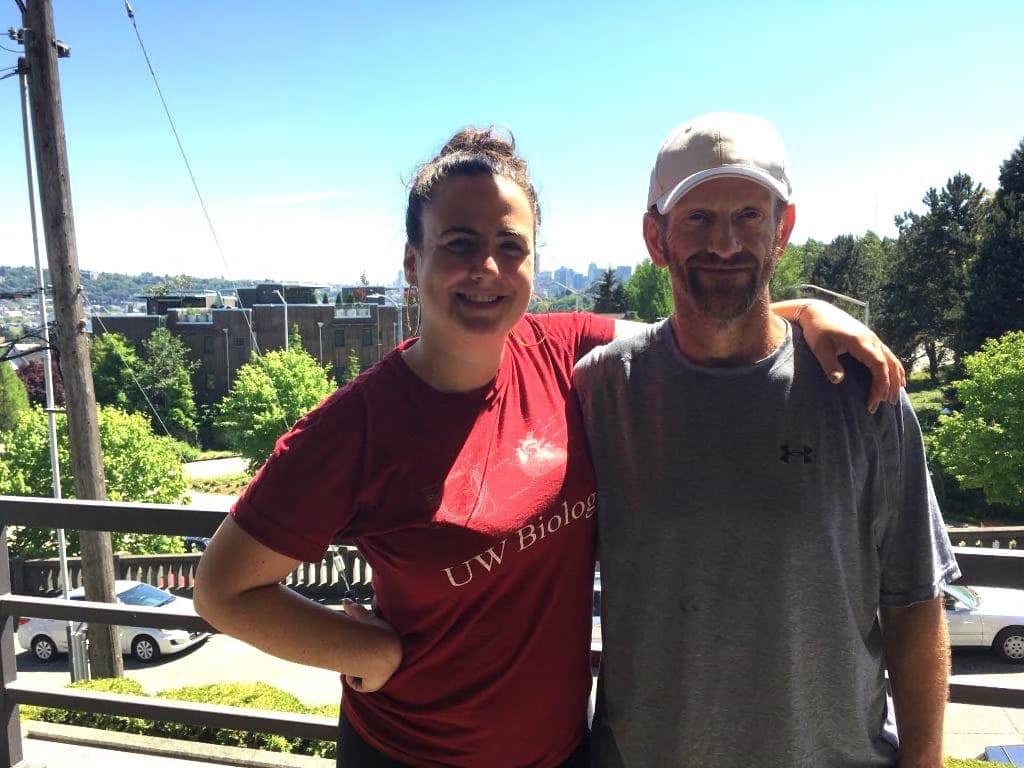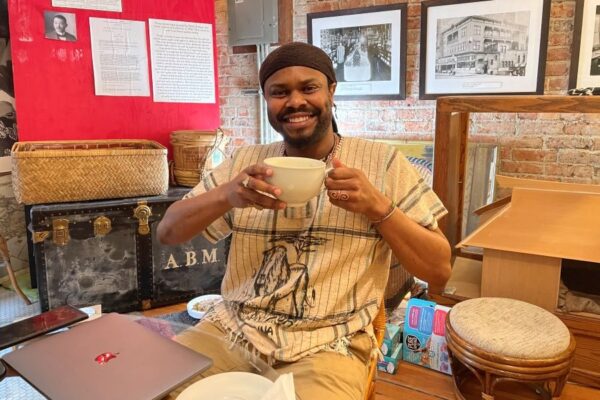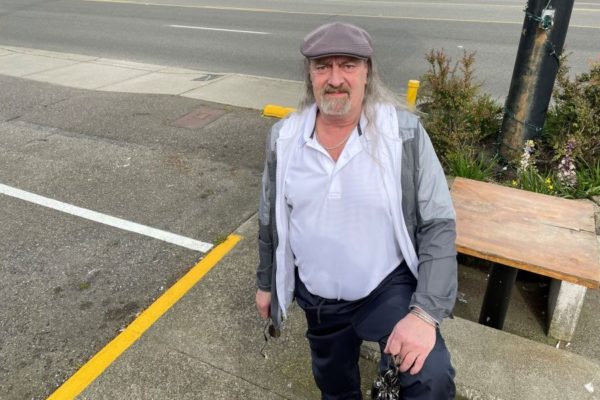Streets to Home an Important Step in Recovery
Whitney Walker is a Housing Case Manager with REACH and an outreach worker with our Streets to Home program. Here she shares how Streets to Home funds were crucial in finding a man a safe place to fight extensive health challenges.
I met Ron October 2015 in a small motel room on Aurora. The room was packed with specialists: two Neighborcare nurses, REACH outreach worker Brenda, myself (first week on the job), and Ron, a 50-year-old male. Ron was bedridden with a serious infection from an open wound on his heel that had spread to his ankle bone. The nurses examined his wound and changed his bandage as Brenda introduced me, as I would be one transitioning Ron into his own permanent housing.
Earlier that year, Ron had stepped on a nail while on a roofing job. The wound didn’t heal as expected. Living in a tent in Federal Way didn’t make the process any easier.
He sought medical care but couldn’t follow up with the complicated discharge and referral plans.
Just before I met Ron, his wound was so serious that he sought treatment in the emergency room of Harborview Medical Center. There, the medical team recommended they amputate his foot. Ron refused the procedure. He panicked. In his agitation he made verbal threats to his care team, which disqualified him from receiving ongoing care from Harborview.
Brenda checked Ron into the motel on Aurora. Thanks to REACH’s access to United Way funds, Ron was able to stay in an agency-funded motel as an ad hoc method of medical respite.
Ron was trying to heal while addressing a multitude of interconnected issues: the trauma of being homeless, chronic drug addiction, undiagnosed mental health disorders. That’s on top of the stress of his medical status, a history of traumatic brain injuries contributing to impulsivity and difficulty focusing, lack of consistent primary medical care, no access to financial resources, and physical distance from supportive, reliable community.
Gaining Momentum Toward Stability
In those nine months since Harborview, Ron began seeing a mental health counselor, established wound and primary care through Northwest Hospital, was approved for SSI through Social Security and maintained his sobriety. He even attended six weeks of daily IV antibiotics at Northwest Hospital at his wound care doctor’s recommendation.
I’ve built a trusting professional relationship with him, coordinated between his team of care providers and housing managers, counseled him through his concerns, and walked beside him as his advocate within our complicated social system.
Ron has truly defied the odds. Through dedication, patience, inner strength and external support, he saved his foot when the medical community told him it was nearly impossible. His successes required time, bed rest, a small horde of care providers, and long-term financial support that fills in the gaps when other options are off the table.
While there are unique aspects to Ron’s story, he’s one of many REACH clients who have also accessed the United Way’s Streets to Home funds. In each of them, a motel was a critical step in housing a homeless family.
There’s even more good news: Once Ron’s healing progressed, we looked for stable housing. There were needs to consider: proximity to his medical team, wheelchair accessibility, plus a landlord who would accept a Shelter Plus Care housing subsidy and was comfortable with Ron’s criminal background. After some denials, we found a one-bedroom apartment in April.





Comments